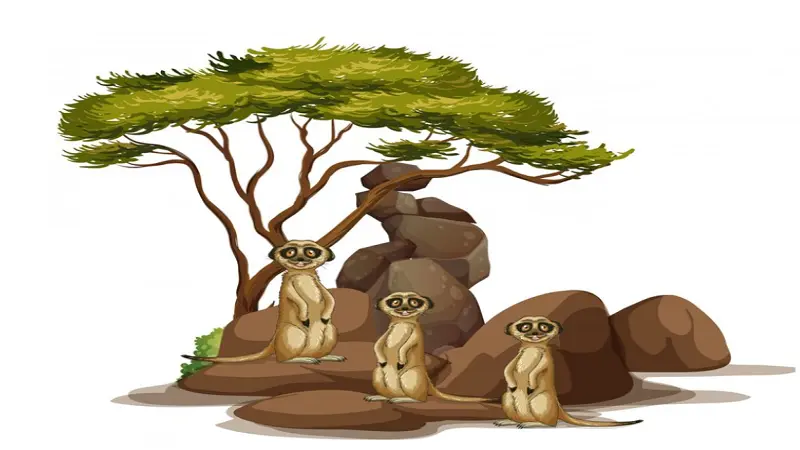What is Jiniphee?
At first glance, “jiniphee” might not be a term most people are familiar with, and that’s entirely understandable. In fact, it doesn’t appear in most traditional dictionaries. However, its origins can be traced to emerging areas of linguistic and spiritual studies, where such terms are often coined to encapsulate complex, often intangible concepts. The word “jiniphee” has been associated with a variety of meanings, depending on the cultural and intellectual lens through which it is viewed.
To understand its full scope, one must first break down the possible roots of the word and explore how it might be used in both personal and global contexts.
Linguistic Origins: Decoding the Word
The term “jiniphee” doesn’t appear to belong to any widely recognized language. It could be a neologism — a newly coined word — that has yet to achieve widespread use. Many modern concepts or philosophical ideas that become part of the popular lexicon emerge in a similar manner. “Jiniphee” might be a creative blend of syllables intended to evoke a particular feeling or conceptual understanding.
In some academic circles, words like jiniphee are introduced to describe nuanced psychological or philosophical states. It could be a symbolic representation of an emotional experience that is difficult to express in plain language. Terms like these have become increasingly important as society seeks to name and explore the complexities of human emotions and experiences, especially in the context of mental health, spirituality, or even futuristic thinking.
Given the fluid nature of language, it’s entirely possible that the term is derived from a mixture of sounds and concepts from various linguistic traditions. For example, “jin” could have associations with concepts of balance or duality in certain Asian languages, while “iphee” might resonate with words in African or European languages related to energy or transformation.
The hybridized nature of the word makes it flexible and open to interpretation, which is part of what gives it such an intriguing presence in the modern lexicon.
Spiritual and Philosophical Interpretations of Jiniphee
In many spiritual communities, the term “jiniphee” has taken on a symbolic meaning. For some, it represents an abstract concept of transformation, enlightenment, or inner peace. Spiritual leaders and mindfulness advocates use the word to describe a state of being in which an individual transcends conventional thinking and achieves a higher state of consciousness.
The idea behind jiniphee in these contexts might be tied to personal evolution, where a person moves beyond self-imposed limits or the constraints of societal norms. Similar to concepts like “nirvana” or “satori” found in Eastern philosophies, jiniphee can represent an ultimate state of being that one strives for — a peaceful and enlightened existence free from distractions.
In Western philosophical terms, it could be viewed as the modern iteration of existential fulfillment or self-actualization. Jiniphee is not simply about achieving success or material wealth, but about transcending the ego and connecting to something greater than oneself, whether that’s the universe, nature, or the collective human experience.
Cultural Influence of Jiniphee
Culture plays an important role in shaping how concepts like jiniphee are understood and manifested. For instance, in communities deeply influenced by meditation, mindfulness, and introspection, the term might be adopted more widely as part of a cultural movement toward deeper self-awareness. Similarly, jiniphee could be embraced by individuals involved in alternative healing practices or holistic lifestyles, where it serves as a reminder to focus on the mind-body connection.
One could imagine jiniphee being part of a new-age philosophy, much like other modern spiritual trends such as mindfulness, manifestation, or collective consciousness. People in these circles may adopt the term as part of their daily vocabulary, using it to describe a state of clarity, a mental breakthrough, or even a collective effort toward universal peace.
For instance, consider the growing interest in practices such as yoga, which involve not only physical movements but a deeper exploration of mental and spiritual health. It’s not difficult to envision jiniphee being used in such practices to describe a moment when the mind achieves complete stillness, or when an individual feels truly in tune with their inner self and the universe at large.
Jiniphee in Popular Media
While jiniphee may not yet be a household word, its use in creative media could bring it into the mainstream. Filmmakers, writers, and musicians often coin new terms to encapsulate emotions or states of being that are difficult to put into conventional language. It’s possible that we might soon see jiniphee used in literature, music, or film to describe a profound inner transformation or a transcendent experience.
For example, a film might explore a protagonist’s journey toward self-realization, with the term jiniphee used to describe that character’s ultimate moment of clarity and peace. Music, especially in the ambient or electronic genres, often relies on abstract ideas to evoke mood or emotion. Jiniphee could easily find a place in song lyrics as a way to encapsulate a sense of spiritual awakening or personal transformation.
The Significance of Jiniphee in Contemporary Thought
In today’s fast-paced, technology-driven world, many people are searching for ways to regain a sense of peace and purpose. Jiniphee, as a term, could serve as a touchstone for those embarking on personal journeys of self-discovery. By using a term like this, individuals can begin to articulate their experiences and reflect on their deeper desires and motivations.
The significance of jiniphee could also be observed in the way it mirrors larger societal shifts. As more people look to spirituality, mindfulness, and personal growth to navigate the complexities of modern life, terms like jiniphee help us define and understand our evolving relationship with self-awareness, community, and the greater universe.
Moreover, jiniphee could have a significant impact on how we think about personal relationships and emotional intelligence. In a world that increasingly values emotional connection and understanding, the concept behind jiniphee may promote deeper empathy and communication. It encourages us to move beyond surface-level interactions and delve into more meaningful, transformative connections with others.
Jiniphee and Mental Health
The term jiniphee could also be applied to discussions surrounding mental health. In the context of therapy or counseling, it might represent a breakthrough moment — a turning point in a person’s healing process. Just as a person reaches a new understanding of themselves or a relationship, jiniphee could symbolize the moment when clarity emerges from confusion, when peace replaces anxiety.
In the broader scope of mental health advocacy, adopting such a term could provide a framework for discussing the complexity of the human experience in ways that feel both accessible and empowering. It provides a new vocabulary for people seeking to understand their emotional landscape, giving voice to the intangible but deeply felt states of being that are often difficult to communicate.
As the world continues to emphasize mental health and emotional well-being, terms like jiniphee offer a unique opportunity to frame personal growth and healing in a more holistic, integrated way. They help us articulate the deeply personal, transformative moments that can lead to mental and emotional renewal.
Conclusion: Embracing the Concept of Jiniphee
Whether jiniphee is a term that becomes a part of everyday speech or remains an enigmatic concept within specific intellectual or spiritual circles, its value lies in the way it captures the essence of human transformation. At its core, jiniphee represents an idea of personal transcendence, an elevation of the mind and spirit to a higher state of understanding.
In exploring jiniphee, we unlock the potential to describe those pivotal moments in life when we find inner peace, clarity, and a deeper connection to the world around us. It’s a term that invites curiosity and reflection, offering a powerful reminder that life is not just about navigating the external world, but also about exploring the rich, complex internal landscapes that define us.
As society continues to evolve and as we each embark on our unique journeys, embracing the concept of jiniphee might just offer us the language and tools we need to achieve greater fulfillment, peace, and understanding in our lives





